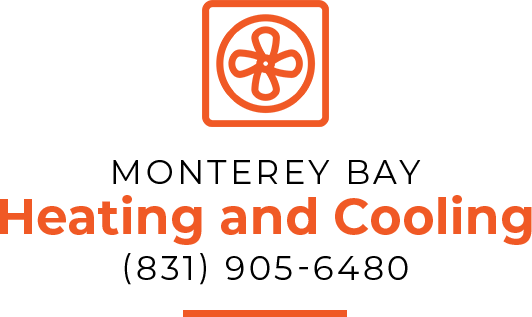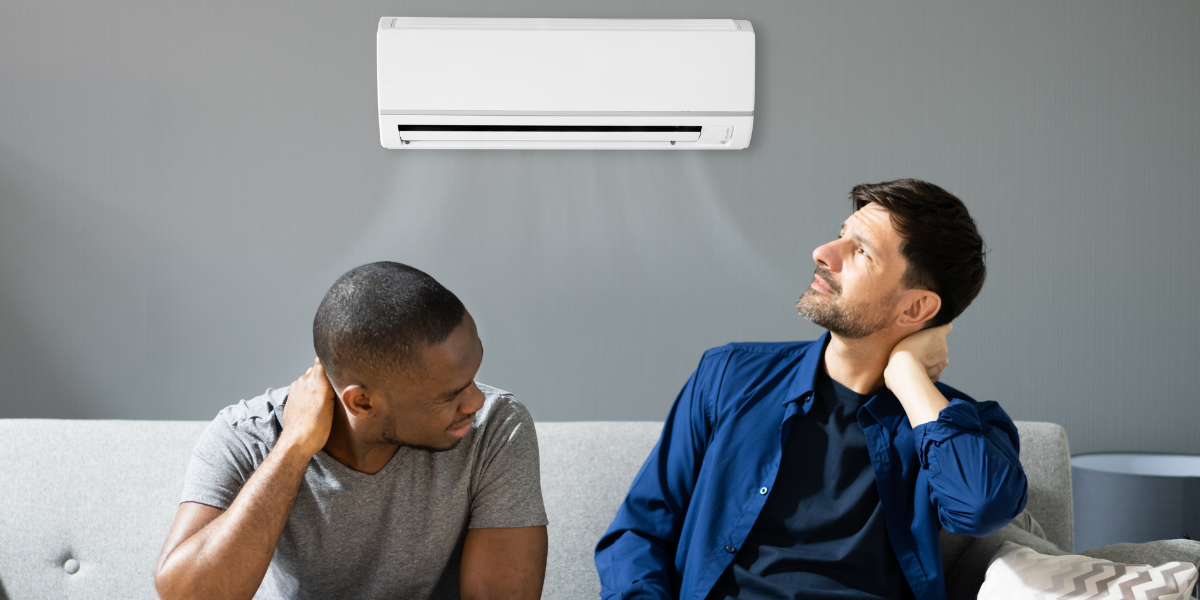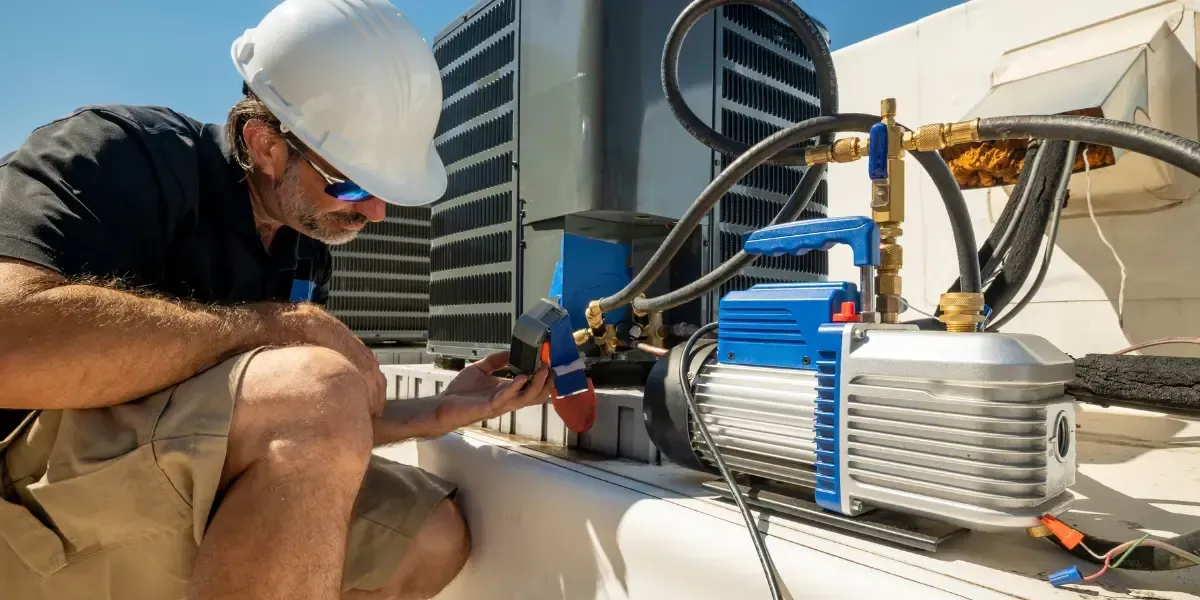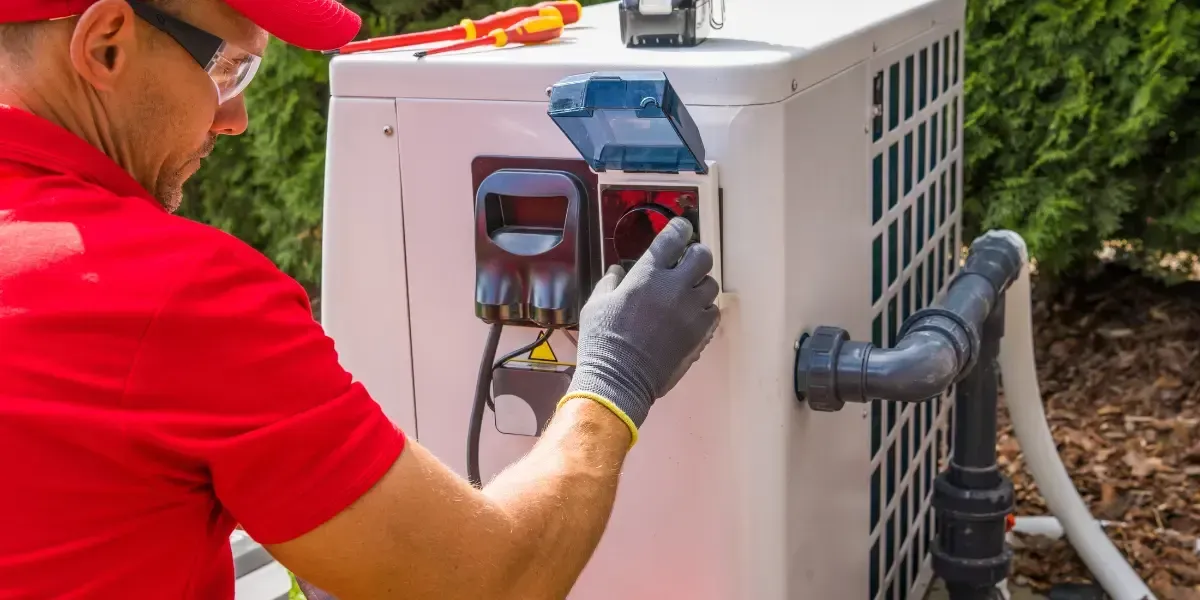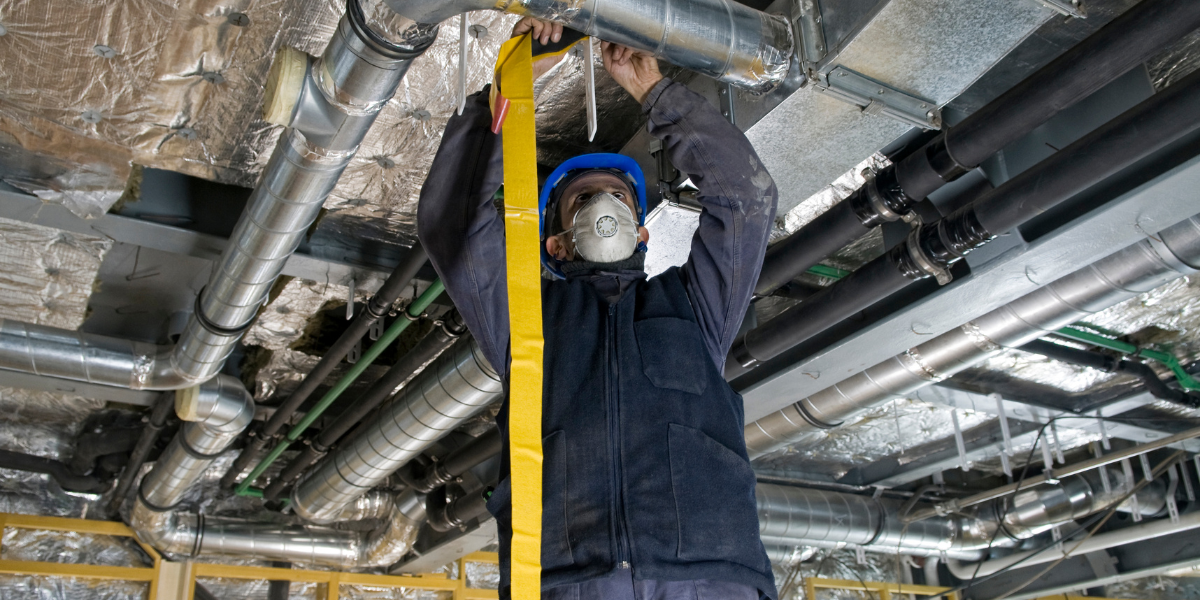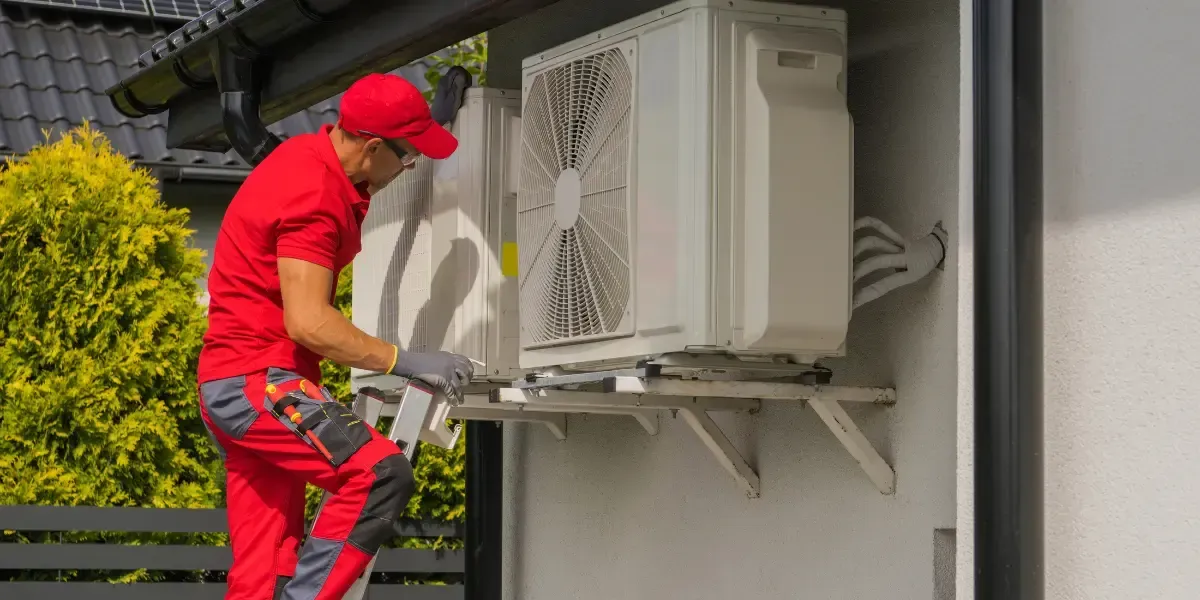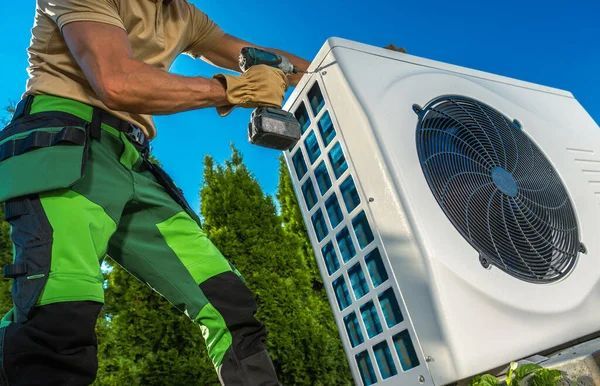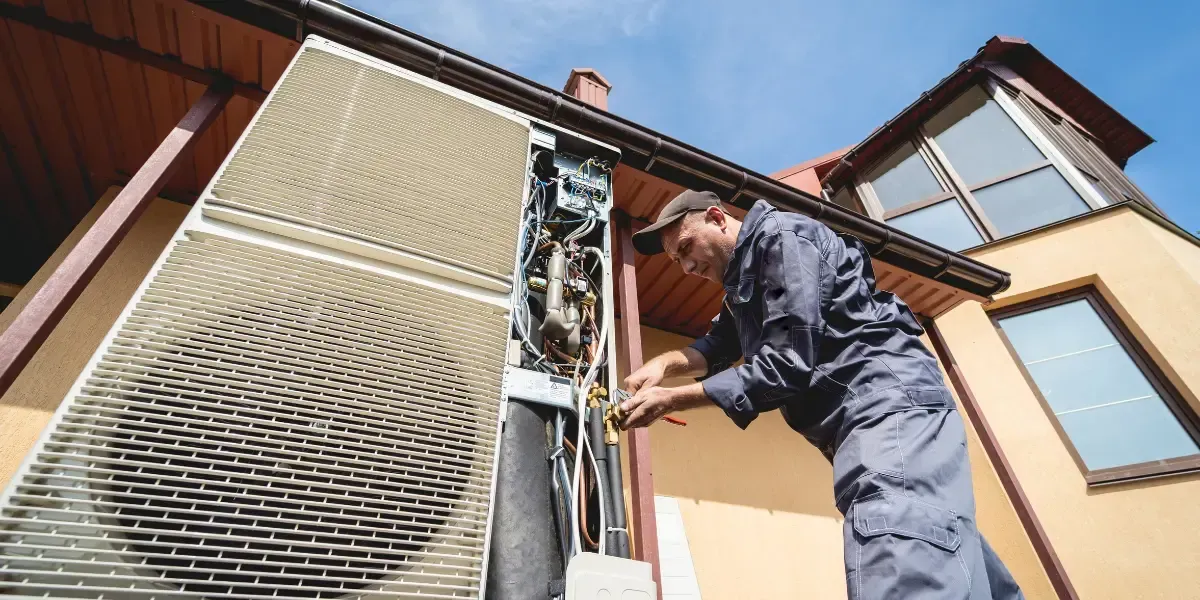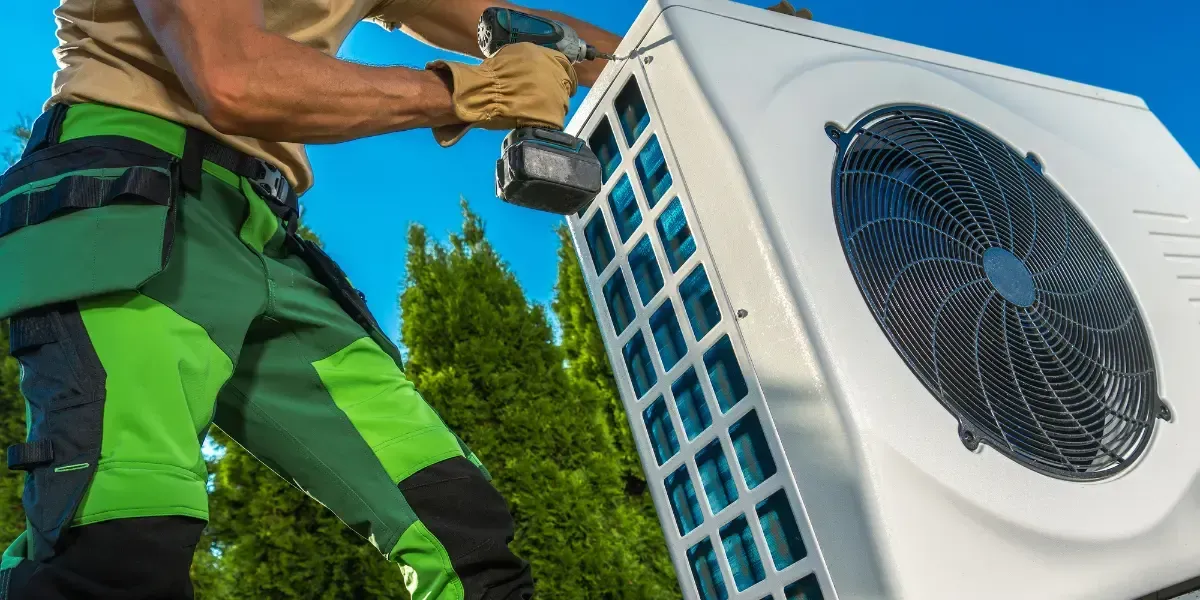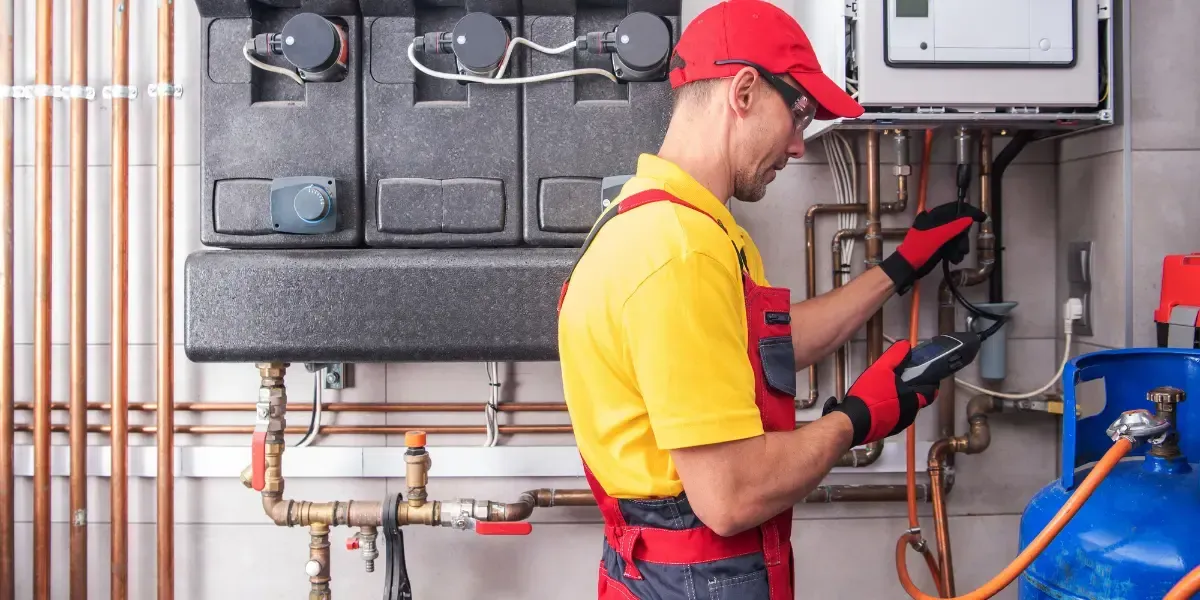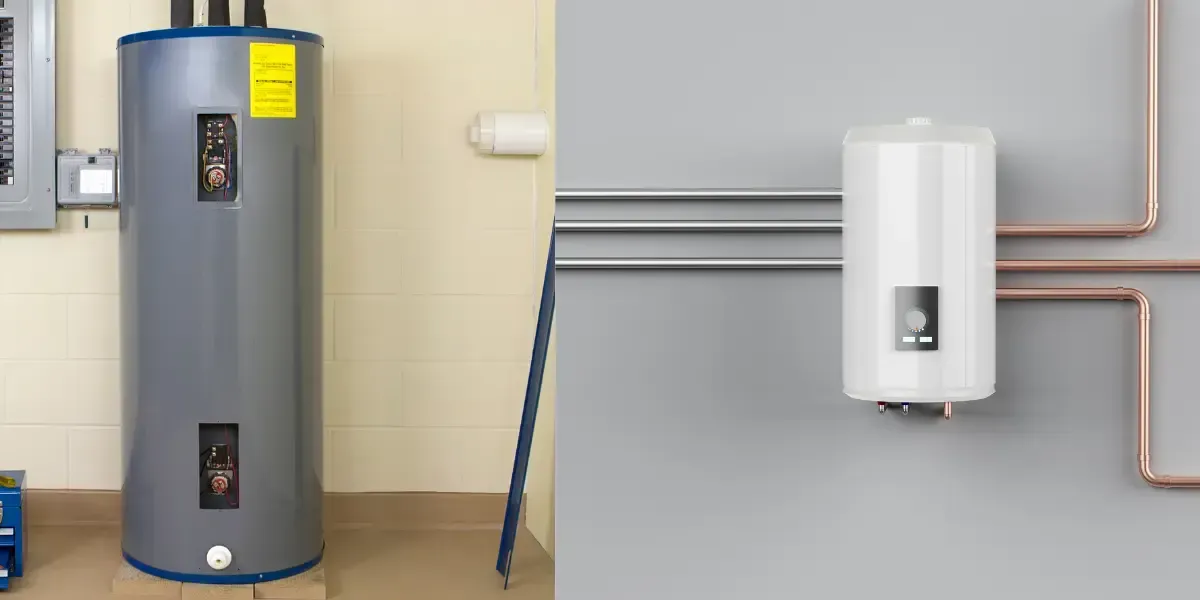Air Conditioner Problems: Solving Them Without Panicking
In the hot summer, you don’t want your air conditioner to stop working. It can feel really annoying, but getting upset won’t help.
Stay calm and fix the issue one step at a time. In this guide, we will look at common air conditioner problems and ways you can solve them without getting stressed.
Key Takeaways
- Common air conditioner issues include refrigerant leaks, frozen coils, dirty filters, faulty thermostats, electrical problems, and drainage blockages.
- Regular maintenance, like replacing filters and inspecting drains, helps keep your AC running smoothly.
- DIY steps such as checking thermostat settings and cleaning filters can resolve basic issues before calling a professional.
- Some issues, like refrigerant leaks or electrical problems, should be handled by an HVAC expert for safe and effective repairs.
- Monterey Bay Heating and Cooling offers reliable and customer-focused AC repair services at affordable prices.
Common Air Conditioner Problems
Refrigerant Leaks
One of the most common problems with air conditioners is a refrigerant leak. Refrigerant cools the air in your unit. If it leaks, your system will have a hard time keeping a comfortable temperature.
Signs of a Refrigerant Leak
If your air conditioner is not cooling well or if you hear hissing sounds near it, this might mean there is a refrigerant leak. Other signs are longer cooling times and higher energy bills.
How to Address a Refrigerant Leak
Fixing a refrigerant leak isn’t something you can do yourself. You will need to call a professional to fix the leak and refill the refrigerant. If you ignore this issue, it can get worse and harm other parts of your system.
Frozen Evaporator Coils
Frozen evaporator coils can make your air conditioner stop working. These coils need warm air to work well. When they freeze, the unit cannot cool your area properly.
What Causes Evaporator Coils to Freeze?
Freezing can happen when there is not enough airflow. This is usually caused by dirty filters or blocked vents. Low refrigerant levels can also make the coils freeze.
How to Fix Frozen Coils
Start by turning off your air conditioner. This will help the coils to thaw. Look at your filters and change them if needed. If the problem still happens, you might need a technician to check your system for bigger problems.
Dirty Filters
Clogged air filters can cause problems for your air conditioner. Dirt and dust can build up in the filters over time. This makes it harder for air to flow. As a result, your AC unit has to work much harder.
How Clogged Filters Impact Performance
A dirty filter blocks airflow. This makes your system less efficient and can cause it to overheat. When this happens, cooling cycles take longer and energy costs go up.
How to Clean or Replace Filters
Cleaning or changing your air filters is easy. You can usually clean most filters with water or a vacuum. But, some filters may need to be replaced completely. It’s a good idea to check your filters every month when you use them the most.
Faulty Thermostat
A broken thermostat can cause incorrect temperature readings. This can make your AC work too hard or not cool properly.
Thermostat Calibration Issues
Your thermostat may lose its settings over time. This can lead to wrong temperature readings. As a result, your AC might run for too long or turn off too early.
Replacing or Repairing the Thermostat
In some cases, readjusting the thermostat can solve the problem. If it is old or cannot be fixed, think about replacing it with a new, programmable thermostat. This will help you manage your home’s temperature better.
Electrical Problems
Electrical problems often happen in air conditioners, particularly as they get older. Loose connections, tripped breakers, or blown fuses can stop your unit from working properly.
Common Electrical Issues in AC Units
Electrical problems often happen in air conditioners, particularly as they get older. Loose connections, tripped breakers, or blown fuses can stop your unit from working properly.
How to Safely Handle Electrical Issues
Resetting a tripped breaker is safe. However, most electrical issues should be fixed by a professional. Trying to handle electrical parts without proper knowledge can be risky.
Drainage Problems
Your air conditioner takes out moisture from the air. This water must go somewhere. If the drainage system gets blocked, it can cause water damage. It can also make the system work less well.
How Blocked Drains Affect AC Efficiency
Blocked drains can make water get stuck in your system. This can cause mold to grow. It can also lead to bad air quality. In some cases, it might even cause your whole system to stop working.
Fixing AC Drainage Problems
To solve drainage problems, look at the drain pan and clean it out if needed. Make sure the drainage line has no blockages. If the issue still continues, you might need help from a professional.
How to Solve These Air Conditioner Problems Without Panicking
When your AC is not working, it can feel like a lot. But there is no need to worry! Just follow these steps to fix most air conditioner issues without stress.
DIY Troubleshooting Tips
If your AC is having issues, begin by looking at the basics. Is the thermostat set right? Are the filters clean? Is the breaker off? Solving these small problems can often help your AC work well again.
Checking Basic Components
Before you ask for help, check the thermostat settings. See if the unit is plugged in and if there is power. Also, make sure the filters are clean. There should be nothing blocking the vents.
When to Call a Professional
If you have checked everything basic and your AC still does not work, it's time to call a pro. Tough problems like refrigerant leaks or electrical issues need expert help.
Preventative Maintenance Tips
The best way to stop big air conditioner issues is by doing regular checks.
Regular Filter Replacement
Changing or cleaning your air filters every month helps your system run well. It also stops bigger problems later on.
Scheduling Routine Inspections
Professional inspections at least once a year can find problems early. This helps keep your system running smoothly when you need it the most.
How Monterey Bay Heating and Cooling Can Help You
If your air conditioner needs help from experts, look to Monterey Bay Heating and Cooling.
They provide several services to fix your AC problems quickly and well.
- Expertise and Experience: With many years of experience, Monterey Bay Heating and Cooling knows how to fix any air conditioner problem. This includes everything from small issues to entire system failures.
- Customer-Centric Approach: What makes Monterey Bay Heating and Cooling special is its focus on customer happiness. They listen to what you say and give you personalized solutions that meet your needs.
- Reliable and Affordable Service: They provide great service at a fair price. Their technicians are dependable, meaning your air conditioner will be up and running quickly.
Conclusion
Air conditioner problems can be stressful. However, if you stay calm and follow these tips, you can fix many issues before they get worse.
Remember, regular care is important to keep your system working well. If you are not sure, call an expert—like the team at Monterey Bay Heating and Cooling—to make sure your AC cools your home efficiently again.
Need help now? Contact
Monterey Bay Heating and Cooling for quick and trustworthy help. Call us today at
(707) 953-2371 and get your air conditioner working well again!
Frequently Asked Questions
What should I do if my air conditioner is leaking water?
First, look to see if the drainage system is blocked. If it is clear and the unit is still leaking, call a pro to check it for bigger problems.
How often should I replace my AC filters?
You should change or clean your air filters every 30 to 90 days. This depends on how often you use your system and if you have pets or allergies.
Can I fix electrical problems with my AC on my own?
No, you should let a professional handle electrical issues. This will help prevent the risk of injury or damage to your system.
What’s the ideal temperature setting for my thermostat during summer?
The best temperature to set is about 78°F (25°C) when you are at home. This helps you feel cool and prevents your air conditioner from working too hard.
How do I know if my air conditioner needs professional repair?
If your AC is making weird noises, not cooling well, or showing leaks, you should have a professional check it.
